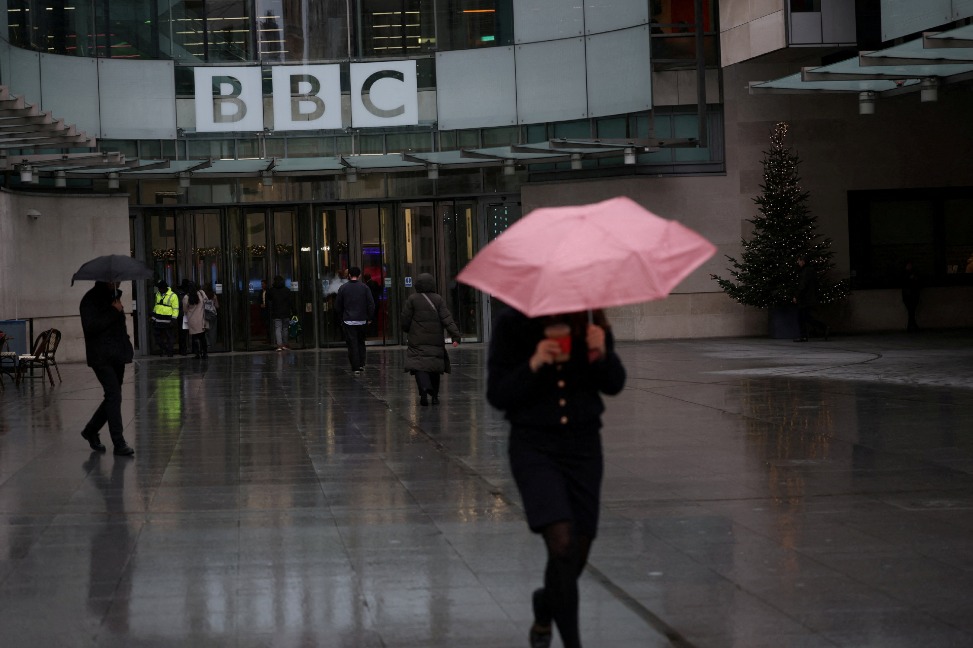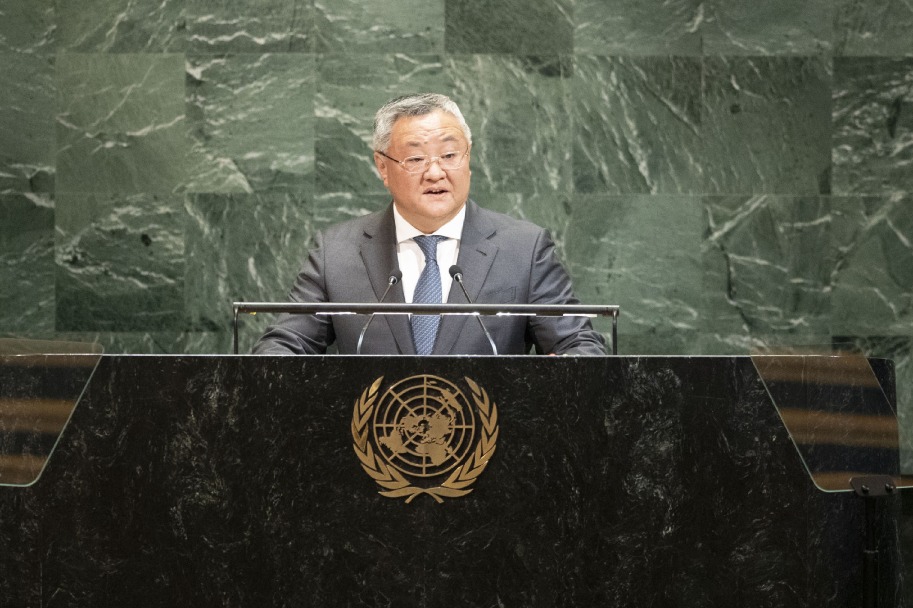The high and low of India's Republic Day mix military parade with farmers' tractor rally






India's 72nd Republic Day on Tuesday witnessed not only celebrations, especially the annual military parade, but also the tractors rally in the capital of New Delhi led by agitated farmers, leaving one dead and dozens injured.
The parade, which gives netizens a source of joy amid pandemic-caused social distancing, displays not only military prowess with tanks and missiles and aircraft, but also shows cultural diversity of this populous nation in much of the morning. Due to recent pullout of British prime minister during the COVID-19 pandemic, this is the first Republic Day celebration without a chief guest in about five decades.
But the day's unpleasant stage is for the protesting farmers, who have been calling for attention to their demand of repealing the three farm laws that they think are unfair. They stormed into the iconic Red Fort where they hoisted a farm union flag and a Sikh religious flag.
Police mounted tight security in place, such as intelligence and security agencies in service and live drone-cameras keeping the aerial check, but the protesting farmers outnumbered and clashed with police near old Delhi Police headquarters and inside the Mughal-era Red Fort -- from where Prime Minister Novindra Modi addresses the nation on Independence Day.
Violent clashes that broke out in multiple places of the national capital left one protester dead after his tractor overturned, 83 police personnel injured and caused damages of public properties in the national capital, said Eish Singhal, a spokesman for Delhi police. The farmers claimed the dead protester lost control over his vehicle after a tear smoke shell exploded near him.
"This has created a chaos despite the appeals by police authorities and farmer leaders to maintain peace," said Professor Karori Singh, emeritus fellow, former director of South Asia Studies Centre at the University of Rajasthan.
According to the professor, it is explained that farmers were agitating peacefully for the last several months camping on the Delhi border in adverse weather conditions, and they were disciplined, but "some anti-social elements" might have infiltrated the tractor rally for creating chaos and perpetrating violence.
Thousands of farmers from various states in India had congregated at different sites around the capital ahead of the Republic Day. The farmers' leaders and police made a consensus on the rally to be held from 12 noon to 5 pm after the military parade. Elaborate security arrangements for maintaining order and law were made between the two parties.
On Tuesday morning, one defiant Punjab union, the All India Farmers' Struggle Coordination Committee allegedly broke down the barricades at the northwestern Singhu, near Delhi and Haryana border point and tractors drove out on the road to Delhi.
By 10 am, barricades had been breached at several entry points of Delhi. On the way, some protesters damaged police barriers near the Old Delhi police headquarters. The protesters were seen snatching the keys of a police bus that was parked to prevent them from moving further towards central Delhi.
Around 1 pm, police fired tear gas shells to stop farmers from marching towards the India Gate, central Delhi. Police action prompted violence from some farmers. Police as well as protesters suffered injuries during stone pelting and subsequent clashes.
A major confrontation erupted near India's Supreme Court and Old Delhi police headquarters at ITO where farmers threw stones and reportedly drove tractors at high speed toward police personnel.
Joint Farmers' Front, an umbrella organization representing more than 40 farmers' unions, condemned those who had taken part in the clashes and said that "anti-social elements had infiltrated the otherwise peaceful movement".
"We condemn and regret the undesirable and unacceptable events that have taken place today and dissociate ourselves from those indulging in such acts," said the group in a statement.
Since agriculture has been a critical sector in India, the farmers' protests have aroused government concern.
On the eve of the Republic Day, Indian President Ram Nath Kovind particularly addressed the community of farmers in his official speech to the nation. "Every Indian salutes our farmers, who have made our vast and populous country self-reliant in food-grains and dairy products. Despite adversities of nature, numerous other challenges and the COVID pandemic, our farmers sustained the agricultural production. A grateful nation is fully committed to the welfare of our farmers."
Kovind went on: "Economic reforms have continued apace and have been supplemented by long-pending reforms in the areas of labor and agriculture through legislation. The path to reform at the initial stages may cause misapprehensions. However, it is beyond doubt that the government remains singularly devoted to farmers' welfare."
Yet the angry farmers, who have been camping at different sites on inter-state borders around Delhi for over two months, have shown no sign of stepping back from their demands of total repeal.
"The agitation will enter in the new phase after Republic Day celebrations violent incidents but there seems little potential to break the deadlock to restart the negotiations," said Prof Singh, "The government's maximalist position of the offer of keeping the legislations on hold for one and half years is not acceptable to the farmers."
Singh said the chaos will have adverse impact on the proposed Parliament march by farmers on Feb 1. "The farmers shall have to redesign their strategy for the next phase of agitation. It is to be seen what course the agitation takes and how deadlock ends to starts fresh talks for agreement on the main demands of the farmers," he said.
"Modi will hear us now, he will have to hear us now," said Sukhdev Singh, 55, a farmer from the northern breadbasket state of Punjab, as he marched past the barricades.
The anger among farmers reflects a "larger crisis" of stagnating incomes in states such as Punjab and Haryana," said Mahesh Rangarajan, a historian at Ashoka University.
Aparajit Chakraborty is a freelance journalist for China Daily.



























